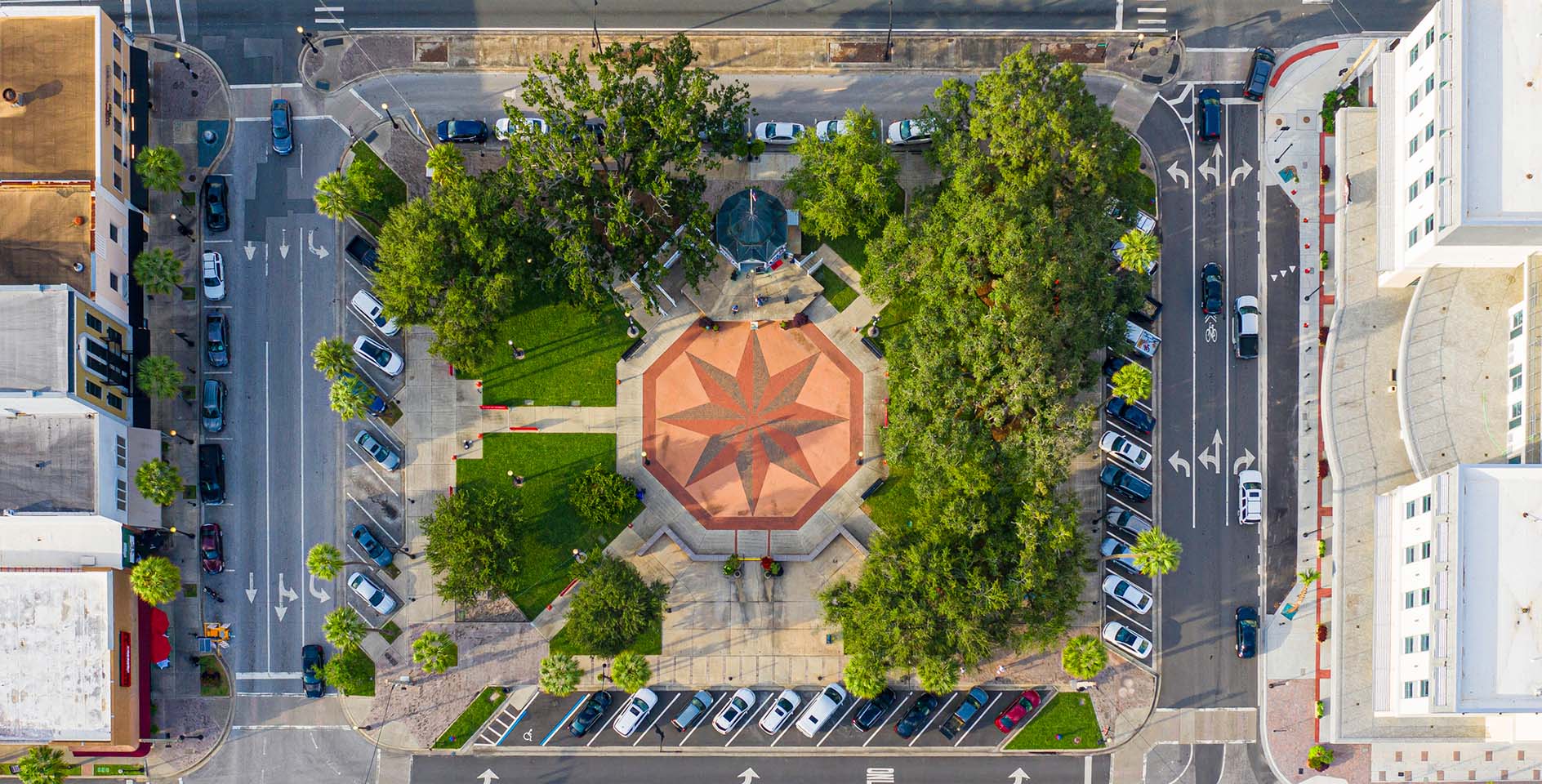Recent trends in American politics tempt Christians to two extremes: withdraw completely from the public square or adopt the vicious and worldly tactics deployed by partisan players. But wisdom beckons us to a different response. Attorney Alex Harris, a Harvard Law graduate and former Supreme Court clerk, demonstrates that it is possible for a Christian to helpfully interact in the public square in a way that is gracious, others-focused, and ultimately for the glory of God. Below, Harris helps us see why engaging in the public square matters, how we can think rightly about it, and how we can work for the good of our neighbors.
Lindsay Nicolet: How did you begin to feel called to work and advocate in the public square?
Alex Harris: I trace that back to my early teen years. My parents, Gregg and Sono Harris, were homeschool pioneers and my siblings and I grew up as part of what is known in Christian homeschool circles as the “Joshua Generation.” First-generation homeschool parents were like Moses, fleeing what they saw as a failing public school system and the moral decay of popular culture to raise their children in the wilderness. Our generation, trained and educated with a thoroughly biblical worldview, would rise up to claim the Promised Land, which meant taking America back for God.
For me, pursuing that calling looked like participating in high school policy debate, working on political campaigns at the local, state, and national level, starting a youth-targeted nonprofit called The Rebelution with my twin brother Brett when we were 16, and writing a book called Do Hard Things: A Teenage Rebellion Against Low Expectations at 19. That same calling eventually led me to Patrick Henry College, drawn to its mission to equip graduates to “lead the nation” and “shape the culture,” then Harvard Law School, and then judicial clerkships with then-Judge Neil Gorsuch and Justice Anthony Kennedy at the U.S. Supreme Court.
Over the years, though, my sense of calling has changed and matured, in large part because of my experiences working as a Christian in politics and law. I still feel called as a believer to work and advocate in the public square, but my vision for what that looks like is different. I know we’ll get into more of that in the later questions, but for now I’ll say that I no longer think God needs me to save America, and I’m not sure that should be our goal in the first place.
LN: Why should Christians care about what goes on in politics? How can we think rightly about it?
AH: We should care because politics, broadly defined, is one primary mechanism through which we love our neighbor. We cannot be indifferent to politics because it touches every aspect of our lives, our families, our churches, and our communities, on issues ranging from education, housing, and criminal justice to immigration and religious liberty.
At the same time, politics is not everything. We think rightly about it by engaging in politics to love our neighbor and advance the gospel, all while recognizing that this world is not our home and that our hope is in Christ, not policies, politicians, or parties. In that sense, a believer’s posture toward politics is just one expression of our posture toward the world in general. In 1 Peter 2:11, Peter calls us “sojourners and exiles.” In 2 Corinthians 5:20, Paul describes us as “ambassadors for Christ” in a foreign land. Our words and actions, the manner in which we engage and advocate in the public square, represent the kingdom of God to the world.
Another passage that has influenced my understanding of these topics is Jeremiah 29:7, where God commands the exiled Israelites to “seek the welfare of the city where I have sent you into exile, and pray to the Lord on its behalf, for in its welfare you will find your welfare.” The order is important. The command is not to seek our own welfare, or to seek the welfare of the city only to the extent we see a direct benefit to us, as if the good of the city is just a means to an end.
Instead, the command is to genuinely seek and pray for the city’s welfare, despite the fact that we’re only temporary residents. But just like the command for children to honor their father and mother, it’s a command with a promise. We can confidently seek the good of the city because of God’s promise that, in and through its welfare, he will provide for us as well.
LN: What would you say to the salesman, stay-at-home mom, or teacher who desires to be more active as a Christian in the public square but doesn’t know where to start? Are there ways to engage in this type of advocacy without formally working in government or public policy?
AH: The first thing I’d say is to remember that the “public square” is not limited to national or state politics, or to political skirmishes on social media. Most of the decisions that affect our families, neighbors, businesses, and churches happen on the local level. The great news is that local politics is also where our advocacy is most likely to have a real impact, even if we never formally work in government or public policy.
The second thing I’d say is that the single best way to get involved in this type of work is just to be in community, seek to love your neighbors, and keep your eyes and ears open. If you do that, there will be opportunities.
LN: How did you prepare yourself and what sustains you as a Christian in the midst of your work?
AH: I’ve found that work in the public square, especially in politics, can quickly warp my perspective. I needed a local community that was outside of that bubble. I needed to regularly be in God’s Word and with his people, to feed my soul, to keep my priorities straight, and to equip me to hear the discordant notes both inside and outside my political tribe. I’ve been so grateful for family, friends, and local churches that have played that protective role over the years.
LN: What are some of your biggest takeaways from working at the Supreme Court?
AH: Working at the Supreme Court was a dream come true for me. Justice Kennedy was a wonderful boss, truly one of the kindest people I’ve ever met, and I was still there when my former boss, Justice Gorsuch, joined the court toward the end of the term. Gorsuch had clerked for Kennedy back in the early 1990s. As far as we know, it was the first time that three generations of justices and their clerks had served together at the same time.
Clerking at the court was hard work but also refreshing. On a personal level, I was prohibited by judicial ethics from publicly engaging in partisan political activity. After years of being actively involved in politics, that felt like a sort of detox. More generally, despite the characterizations you read so often in the media, the court really is insulated from many of the political pressures and dynamics that permeate the other branches of government.
With few exceptions, I saw the justices and my fellow clerks genuinely trying to get it right. When they disagreed with one another, it was always with the idea and not the person. It was so different from the zero-sum, no-holds-barred world of partisan politics I was used to. Of course, there are many reasons for those differences, but one of the important ones is the simple fact that the Supreme Court is a small and tight knit community, whose members not only work together but also regularly share meals, share each other’s joys and sorrows, and share the very real weight of the public trust.
My experience at the court made me far less interested in fighting partisan battles and much more interested in other ways of engaging with issues in the public square.
LN: Are there any biblical models or principles that you draw from as you carry out your work?
AH: Over the past couple years, one of the principles that has really jumped out at me is the Bible’s repeated command that our interactions, disagreements, and even defense of the faith be characterized by “gentleness.” Gentleness is an unmistakable biblical imperative for believers, and once you notice it, you’ll start seeing it everywhere.
We’re told that gentleness is a “fruit of the Spirit” in Galatians 5:23. According to Ephesians 4:3, to “walk in a manner worthy” of our calling means to walk “with all humility and gentleness.” In the opening verses of Titus 3, Paul instructs Titus to remind the believers “to be submissive to rulers and authorities, to be obedient, to be ready for every good work, to speak evil of no one, to avoid quarreling, to be gentle, and to show perfect courtesy toward all people.”
Even as we contend for the faith and seek to be ready to “make a defense,” like it says in 1 Peter 3:15, we’re commanded to “do it with gentleness and respect.” Perhaps most significantly, Jesus describes himself as “gentle and lowly,” and taught that it is the “meek,” a word often translated as “humble” or “gentle,” who will “inherit the earth.”
In an age when political and social division is rampant, even in the Church, when it feels like religious freedom is under attack, and when our “opponents” seem loud, vocal, even hateful, I wonder what would happen if believers would start taking seriously the call to gentleness.
LN: As you do work in the public square, what does it look like to “seek the welfare of the city” specifically in 2022 America?
AH: In recent years, as an attorney in private practice, my engagement in the public square has been more local and focused on my immediate community. I’m serving and supporting my local church in Denver, a city full of distractions and filled with transient people looking to get away from God, their family, and their past.
At the moment, I’m joining my neighbors in opposing the reopening of a bar that had become a serious disturbance and danger to the community. I’ve also supported or volunteered with different local organizations serving at-risk youth, refugees, expecting mothers, children in foster care, the homeless, and the elderly here in Denver. Each of those is a small way I am seeking the welfare of my city, which I plan to continue.
At the same time, I’m increasingly convinced that there is a growing need and hunger in the Church, perhaps especially among younger Christians, to discover a different way to faithfully engage with politics and culture. You see that in organizations like the AND Campaign, which seeks to equip believers of all political stripes for faithful civic engagement, marked by a firm commitment to both redemptive justice and values-based policy, not allegiance to a political party.
As someone who has seen the good, bad, and ugly in politics over the last 15 years, but who has also seen the beauty of so many of my brothers and sisters in Christ living out their faith in the public square, I’d love to help cast that vision now and in the years ahead.
LN: Where are the pressure points and temptations to compromise in our line of work, and how do you resist those? How do you strengthen your character as a Christian to stand firm?
AH: The danger is always that our faith is co-opted in service of some cause or interest that is not the gospel and the kingdom of God. This happens whenever Christians compromise what is true and right to win the praise or acceptance of the world. In evangelical circles, we usually think of this in terms of currying favor with left-leaning members of the media, academia, or pop culture. But it can also happen in the other direction, if as Christians we start conforming our religious convictions to a conservative, libertarian, or Republican worldview.
We should not expect any party platform, man-made philosophy, or political movement to perfectly align with biblical principles. We can and should ally ourselves with others in common cause, and it may be that one group or another is a more frequent ally on shared priorities. But faithfulness ultimately requires allowing Scripture to challenge and critique every party and platform.
The way we resist both of these temptations is what I talked about earlier, being in God’s Word, being in community, and inviting our families, friends, and churches to speak into our lives. It’s so hard to see clearly when you’re in the trenches. Politics is so competitive, fast-paced, and relentless, which lends itself to black-and-white, us-versus-them, identity-based thinking on both sides. As Christians, we’re called to resist those impulses, but we can’t do it alone.
LN: How do you work with people who don’t share your faith? And how should we interact with people on the opposite side of an issue?
AH: I’m sure that entire books have been written on these topics, but I’ll share a few thoughts from my own experience. First, strive to follow the biblical imperative of gentleness, like we talked about it earlier.
Second, remember that they are your neighbor, made in God’s image. That means you are called to love them and treat them with respect, even when you disagree.
Third, don’t expect someone who is not a Christian to act or think like one. As believers, while we can and should advocate for biblical morality and ethics, we should be far more concerned with whether we are faithfully acting and thinking like Christians.
Finally, do expect to find common ground, even with people who don’t share your faith or political persuasions. Thankfully, the real world is not social media or a TV talk show, which tend to elevate the loudest voices and most extreme views and where the incentive is to perform for your own side rather than engage in good faith. If you’re willing to listen and seek to understand, I think you’ll be surprised how willing most people are to reciprocate, and how easy it is to find common ground.
LN: What do you see as the greatest needs in the public square, and how can Christians rise up to meet those?
AH: I do not presume to have the single right answer to this question, but I’d echo much of what I’ve talked about in previous answers. I’d love to see Christians lead the way out of our broken political culture and for our engagement in the public square to be marked by gentleness, love of neighbor, and fealty to Scripture, even if that leaves us politically homeless.
I’m also struck by the fact that so many people are hurting right now. We’re coming out of a global pandemic, we’re processing the constant, heartbreaking news out of Ukraine, and I think most people would agree that the last few years have been exhausting on every level: physical, emotional, psychological, relational, and spiritual. On top of that, we’re still dealing with all of the normal brokenness of living in a fallen, sinful world. So while this observation has always been true, you really have no idea what burdens someone may be carrying.
Alarmingly, pastors, who have such an important role to play in their local communities, including by equipping their congregations to faithfully engage in the public square, are burned out and leaving the ministry in increasing numbers. We need grace, and we need to give one another grace. The good news is that we can do that, because all the grace we need is already ours in Christ.
Alex Harris is an attorney and former SCOTUS clerk.










